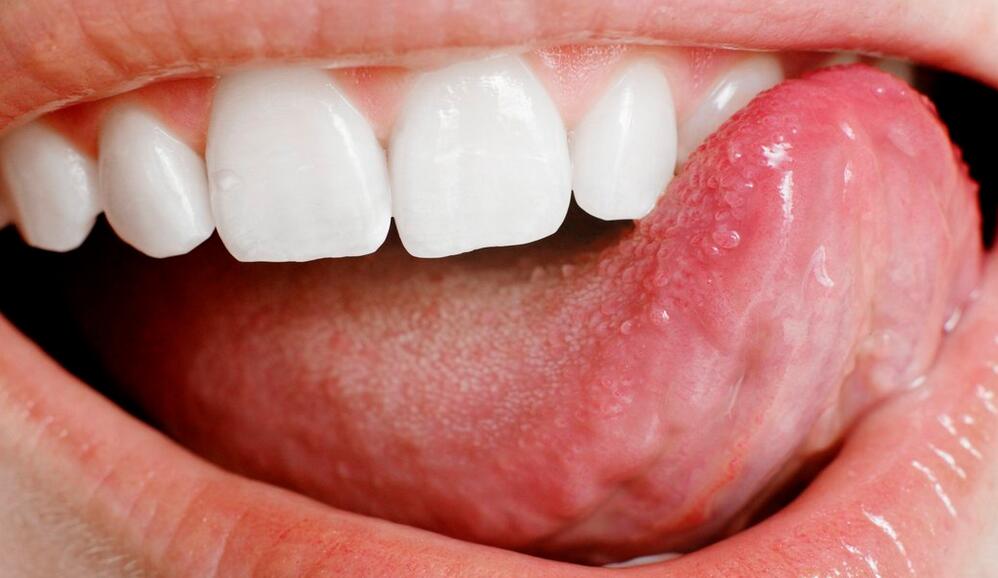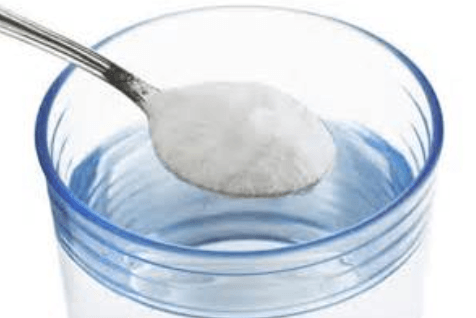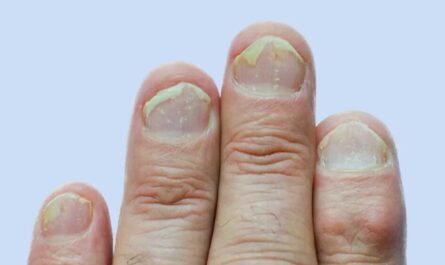Ulcers on the tongue can be extremely uncomfortable and painful. They can make eating and speaking difficult, causing a lot of inconvenience and distress. If you’re suffering from ulcers on the tongue, fret not! There are several natural remedies that can help alleviate the discomfort and promote healing. This article explores the causes and 12 best natural remedies for ulcers on the tongue.

What is a mouth ulcer?
Mouth ulcers, also known as oral ulcers, are painful sores that can appear anywhere inside your mouth. These sores, red, yellow, or white, may occur as a single sore or in multiple locations.
They can manifest on your gums, tongue, roof of the mouth (palate), inner cheeks, or inner lips. Mouth ulcers often cause discomfort while eating, drinking, or speaking.
In addition, Mouth ulcers are typically easy to identify as they appear as sores on the gums, tongue, inner cheeks, inner lips, or roof of the mouth. These sores often have red edges and a white, yellow, or gray center.
You may experience a single ulcer or multiple ones. Additional symptoms can include:
- Swelling around the ulcers.
- Increased soreness when brushing your teeth.
- Pain that intensifies when consuming spicy, salty, or sour foods.
12 Causes of Ulcers on the Tongue
Ulcers on the tongue can occur due to various factors. Understanding the underlying causes can help prevent future outbreaks. Here are some common culprits:
1. Allergies
Allergies can trigger ulcers on the tongue. Certain food items, such as citrus fruits, spices, or nuts, can cause an allergic reaction leading to tongue ulcers. Additionally, allergic reactions to medication or oral care products can also result in tongue ulcers.
2. Nutritional Deficiencies
Deficiencies in essential vitamins and minerals can contribute to the development of ulcers on the tongue. Specifically, vitamin B12, iron, and folate deficiencies have been linked to tongue ulcers.
3. Oral Trauma
Accidental tongue biting or injuries from sharp objects can cause painful ulcers. Tongue ulcers resulting from trauma typically heal on their own within a week or two. However, if the ulcer persists or worsens, it is advisable to consult a healthcare professional for further evaluation.
4. Infections
Several types of infections can lead to ulcers on the tongue. Viral infections like herpes simplex virus (HSV) can cause painful sores or blisters on the tongue. Bacterial or fungal infections may also contribute to the development of tongue ulcers.
5. Oral Hygiene
Poor oral hygiene can create an environment conducive to tongue ulcers. Failure to maintain regular brushing and flossing routines can lead to bacterial growth in the mouth, causing tongue ulcers.
6. Hormonal Changes
Hormonal changes, such as those occurring during menstruation or pregnancy, can increase the likelihood of developing ulcers on the tongue. Fluctuations in hormone levels can affect the body’s immune response, making the tongue more susceptible to ulcers.
7. Autoimmune Disorders
Certain autoimmune disorders, such as Crohn’s disease, lupus, or Behçet’s disease, can manifest with ulcers on the tongue. These ulcers are often recurrent and may require ongoing management by a healthcare professional.
8. Medications
Some medications can cause side effects that include tongue ulcers. Non-steroidal anti-inflammatory drugs (NSAIDs), antibiotics, or medicines used in chemotherapy are examples of drugs associated with tongue ulcers. If you suspect a medication is causing your tongue ulcers, consult your healthcare provider to discuss alternative options.
9. Emotional Stress
Emotional stress can have a significant impact on oral health, including the development of ulcers on the tongue. Stress weakens the immune system, making the tongue more vulnerable to ulcers.
10. Smoking and Tobacco Use
Smoking and tobacco can irritate the tongue and increase the risk of developing ulcers. The harmful chemicals present in tobacco products can damage the delicate tissues of the tongue, leading to the formation of ulcers.
11. Hormonal Imbalances
Imbalances in hormonal levels can contribute to tongue ulcers. Conditions like hypothyroidism or hyperthyroidism can disrupt the body’s normal functioning and increase the likelihood of developing ulcers on the tongue.
12. Oral Cancer
In rare cases, ulcers on the tongue can be a symptom of oral cancer. Persistent or non-healing ulcers should be evaluated by a healthcare professional. Other symptoms include difficulty swallowing or a lump in the mouth.

10 Best Home Remedies for Ulcers on the Tongue
1. Saltwater Rinse
A saltwater rinse is one of the simplest and most effective remedies for tongue ulcers. Salt has antiseptic properties that can help reduce inflammation and prevent infection.
To prepare a saltwater rinse, dissolve half a teaspoon of salt in a cup of warm water. Gently swish the solution in your mouth for about 30 seconds, focusing on the area with the ulcer. Repeat this rinse several times a day for best results.
2. Honey
Honey is known for its antimicrobial and wound-healing properties, making it an excellent natural remedy for tongue ulcers.
Apply a small amount of raw honey directly onto the ulcer and let it sit for a few minutes before rinsing your mouth. Repeat this process a few times daily to speed up the healing process.
3. Aloe Vera Gel
Aloe vera gel is widely recognized for its soothing and healing properties. Extract fresh aloe vera gel from an aloe leaf and apply it directly to the ulcer. Leave it on for about 10 minutes before rinsing your mouth. The gel will provide relief from pain and inflammation while promoting the healing of the ulcer.
4. Chamomile Tea
Chamomile tea has anti-inflammatory and antimicrobial properties, making it an excellent natural remedy for tongue ulcers.
Brew a cup of chamomile tea and allow it to cool. Gently swish the tea in your mouth, ensuring it comes into contact with the ulcer. Repeat this process several times a day for relief and accelerated healing.
5. Coconut Oil
Coconut oil is a versatile remedy that can help alleviate the pain and inflammation associated with tongue ulcers. Apply a small amount of coconut oil to the ulcer and let it sit for a few minutes.
The oil will create a protective barrier and promote healing. Repeat this process multiple times throughout the day.
6. Vitamin B12
Vitamin B12 deficiency is often linked to the development of tongue ulcers. Ensure you’re getting an adequate amount of this essential vitamin through your diet or consider taking a B12 supplement. Foods rich in vitamin B12 include meat, fish, dairy products, and fortified cereals.
7. Licorice Root
Licorice root contains anti-inflammatory and antimicrobial compounds that can help soothe tongue ulcers and aid in healing.
Prepare a licorice root rinse by boiling a tablespoon of licorice root powder in a cup of water. Allow it to cool, strain the mixture, and use it as a mouthwash several times daily.
8. Turmeric Paste
Turmeric has long been used for its medicinal properties, including its ability to reduce inflammation and promote healing.
Mix turmeric powder with water to create a paste and apply it directly to the ulcer. Leave it on for a few minutes before rinsing your mouth. Repeat this process daily until the ulcer heals.
9. Vitamin C-Rich Foods
Vitamin C is essential for the body’s natural healing processes. Incorporate foods rich in vitamin C into your diet, such as citrus fruits, strawberries, kiwi, bell peppers, and broccoli. These foods will help boost your immune system and aid in healing tongue ulcers.
10. Sage Mouthwash
Sage is known for its antibacterial and anti-inflammatory properties. Prepare a sage mouthwash by steeping fresh or dried sage leaves in hot water for 10 minutes.
Allow the mixture to cool, strain it, and use it as a mouthwash several times daily. The sage mouthwash will help reduce inflammation and provide relief.
How to Prevent Ulcers on the Tongue?
To prevent ulcers on the tongue, also known as canker sores, you can follow these tips:
- Practice good oral hygiene: Brush your teeth twice daily and use a soft-bristled toothbrush to avoid injuring your tongue while brushing. Additionally, floss daily to maintain oral hygiene.
- Avoid triggering foods: Certain foods can irritate the tongue and trigger the development of ulcers. Common culprits include spicy and acidic foods, such as citrus fruits, tomatoes, and hot peppers. Avoiding these foods can help prevent tongue ulcers.
- Maintain a balanced diet: A well-balanced diet that includes plenty of fruits, vegetables, and whole grains can help boost your immune system and reduce the risk of developing tongue ulcers.
- Manage stress: Emotional stress can weaken the immune system, making you more susceptible to developing ulcers. Engage in stress-reducing activities such as exercise, meditation, or hobbies to help manage stress levels.
- Avoid biting or injuring your tongue: Accidental bites or injuries to the tongue can lead to ulcers. Avoid habits such as chewing on pens or pencils.
- Use a soft toothbrush: Choose a toothbrush with soft bristles to minimize any potential damage to your tongue while brushing. Hard bristles can irritate and increase the risk of developing ulcers.
- Practice proper dental care: Regular dental check-ups and cleanings can help identify and address any oral health issues that could contribute to tongue ulcers.
- Consider oral hygiene products: Some individuals find relief by using mouthwashes or oral gels specifically formulated to soothe mouth ulcers. These products can provide temporary pain relief and promote healing.
- Avoid tobacco and alcohol: Tobacco and alcohol can irritate the mouth and increase the risk of developing ulcers. Quitting smoking and limiting alcohol consumption can help prevent tongue ulcers.
FAQs
1. Are tongue ulcers contagious?
No, tongue ulcers are not contagious. They are typically caused by factors such as injury, infections, or nutritional deficiencies.
2. How long do tongue ulcers take to heal?
The healing time for tongue ulcers can vary depending on their size and underlying cause. In general, they can take anywhere from a few days to a couple of weeks to heal completely.
3. Can tongue ulcers be a sign of a more serious condition?
While tongue ulcers are usually harmless and resolve on their own, persistent or recurrent ulcers may indicate an underlying health issue. If you experience frequent or long-lasting ulcers, it’s advisable to consult a healthcare professional for further evaluation.
4. Can I pop or burst a tongue ulcer?
No, it is not recommended to pop or burst a tongue ulcer. This can lead to further infection and delay the healing process. Allow the ulcer to heal naturally and focus on providing relief through natural remedies.
5. When should I seek medical attention for tongue ulcers?
While most tongue ulcers heal on their own, you should seek medical attention if you experience severe pain, difficulty swallowing, or if the ulcers persist for more than two weeks.






